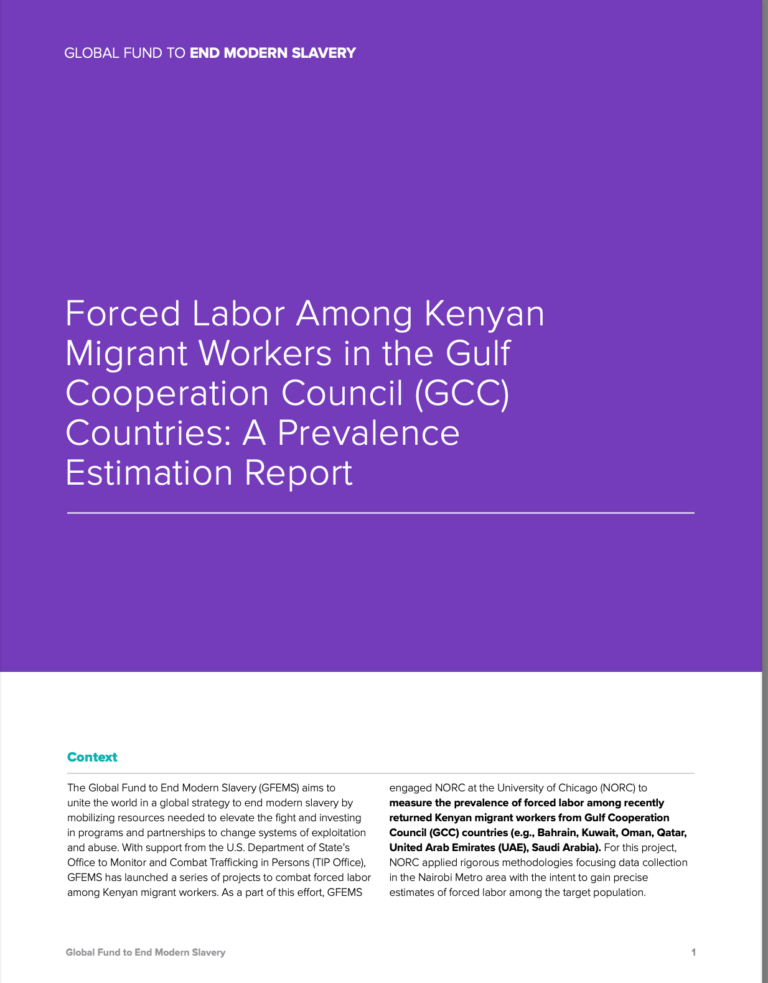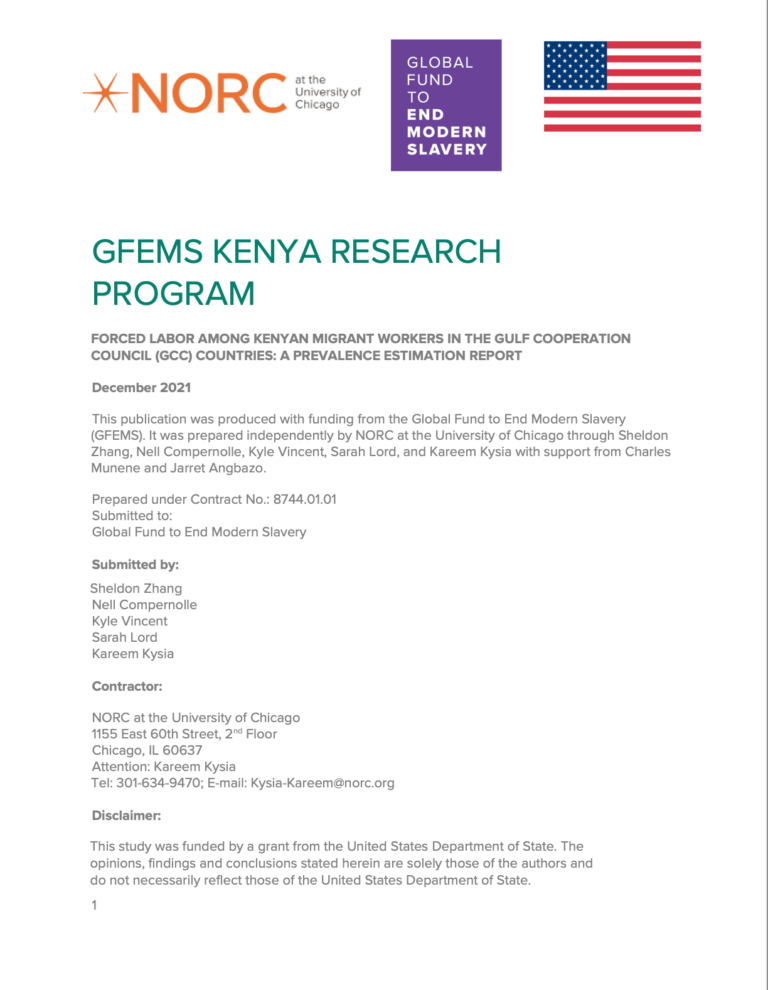The Global Fund to End Modern Slavery (GFEMS) aims to end modern slavery by making it economically unprofitable through interventions and experimental innovations implemented in collaboration with on-the-ground partners. With support from the U.S. Department of State’s Office to Monitor and Combat Trafficking in Persons (TIP Office), GFEMS has launched a series of projects to combat forced labor among Kenyan migrant workers. As a part of this effort, GFEMS engaged NORC at the University of Chicago (NORC) to measure the prevalence of forced labor among recently returned Kenyan migrant workers from Gulf Cooperation Council (GCC) countries (e.g., Bahrain, Kuwait, Oman, Qatar, United Arab Emirates (UAE), Saudi Arabia). For this project, NORC applied rigorous methodologies focusing data collection in the Nairobi Metro area with the intent to gain precise estimates of forced labor for the target population.


